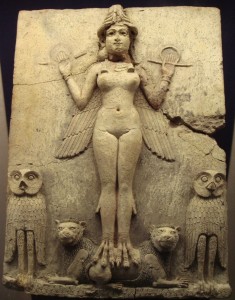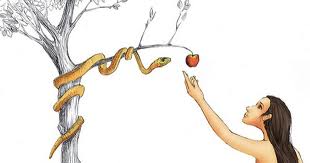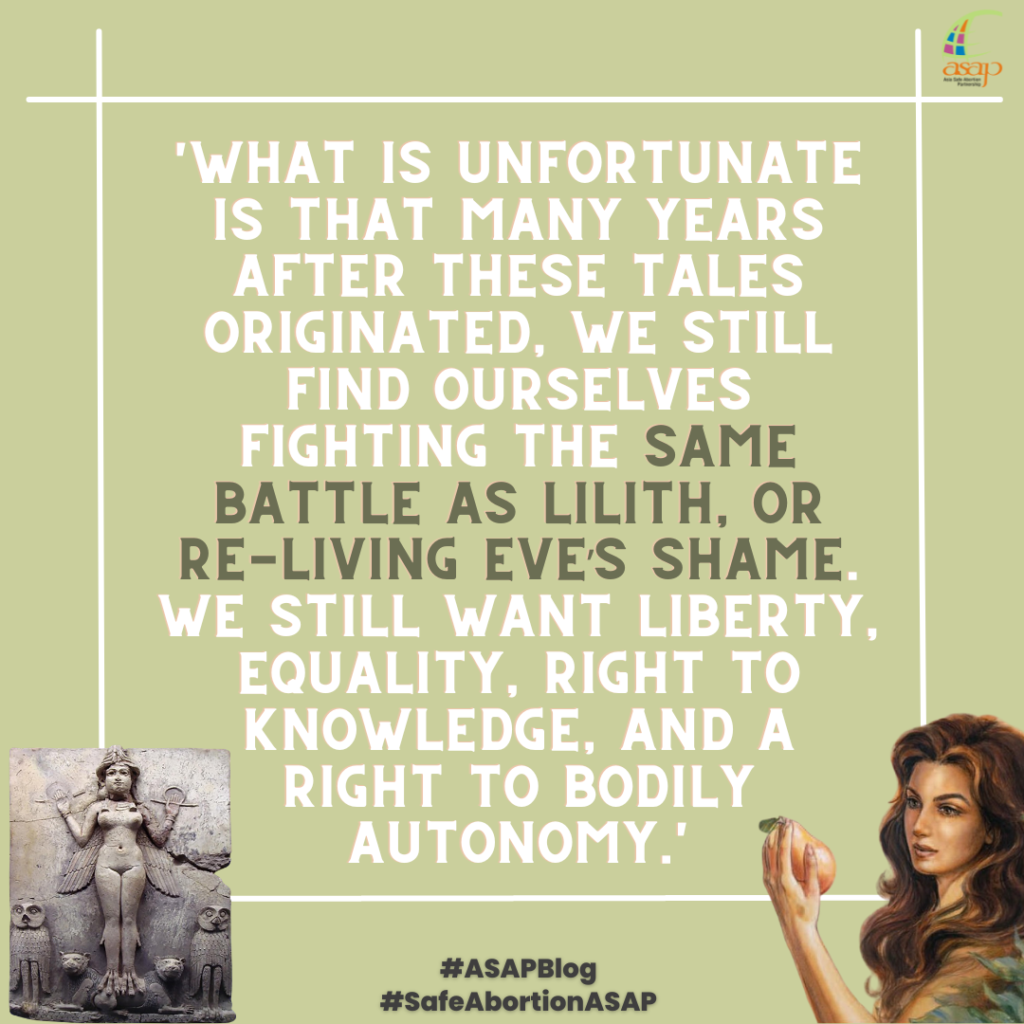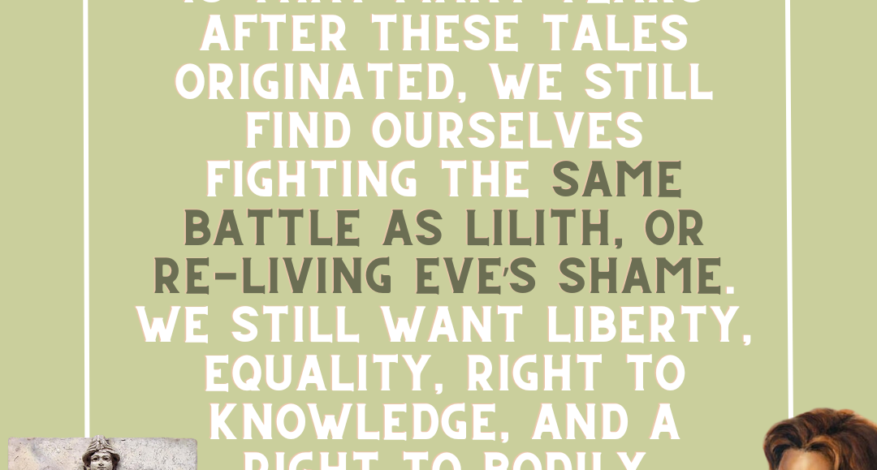Lilith and Eve
As we mapped misogyny in time we discovered something really interesting. Not all Judaic tales agree that Eve was the first woman, or even Adam’s first wife. Some folk tales from old Mesopotamia say that before Eve, there was Lilith. When we discovered why she might have been left out of what has become the singular narrative of creation, we thought we would make her our person of the month. But Lilith’s tale is incomplete without Eve, and we just had to include Eve.
So, let’s begin the tale with Lilith. In popular Biblical tales and Judaic texts, Lilith is a female demon. But here is her story according to old folk tales.

When God created the world, he apparently created man and woman — Adam and Lilith — equal. They were both molded from the earth in Eden. But unfortunately, Lilith was not the wife Adam wanted. She refused to obey him in his everyday life, and was not happy to lie beneath him during sex.
While ASAP coordinator Dr. Suchitra Dalvie was digging into these stories she ran into one where Lilith even says, “Why must I lie beneath you, I was also made of dust, and am therefore your equal.”
Adam took the case up with God, who agreed that a wife must obey and submit to her husband. Lilith eventually left Adam and turned into a demoness. From her relationship with Adam, she gave birth to several other demons that are believed to taunt the descendants of Adam and his more obedient second wife Eve.

We all know the story of Eve of course. She was made from Adam’s rib – a part of his body – in order to be his subordinate and wife. Of course, the temptation to take a bite from the fruit of the tree of knowledge swung her to the dark side. She shared the fruit with Adam, and then got them both expelled from Eden. The world has ever since blamed woman for the loss of paradise and the beginning of all its suffering.

Lilith and Eve don’t stand alone. Mythological stories from all cultures abound with stories such as these – the rebellious woman who is demonized and shunned; and the subjugated woman who is oppressed, more if she tries to break the rules of society.
What is unfortunate is that many years after these tales originated, we still find ourselves fighting the same battle as Lilith, or re-living Eve’s shame. We still want liberty, equality, right to knowledge, and a right to bodily autonomy.
It is hard to tell when things will change, but it is important to recognize misogyny in our history, and to take deliberate steps to avoid its reflection on our daily lives.







